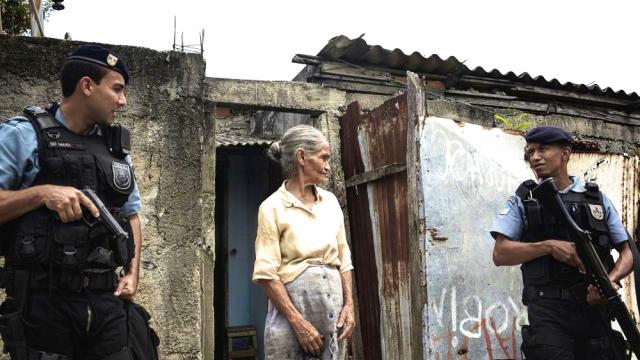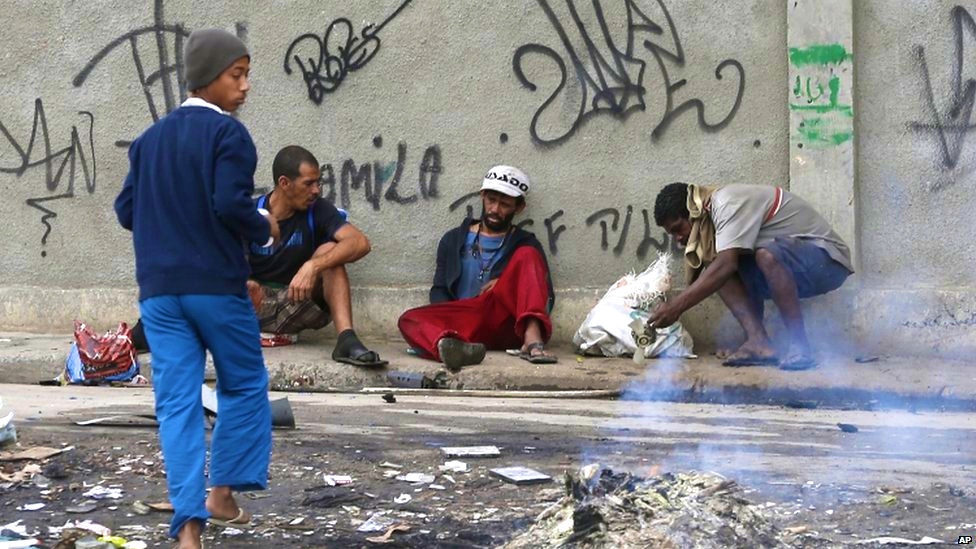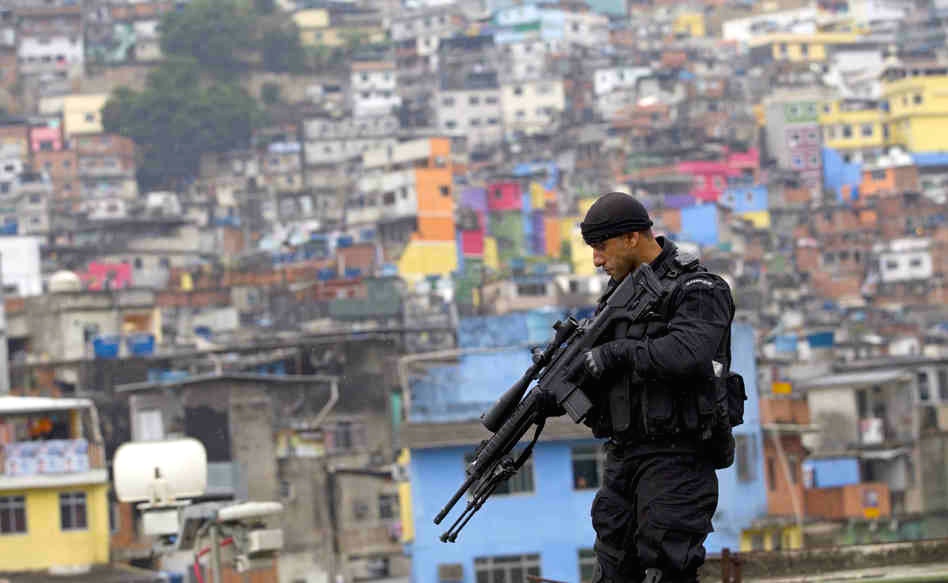
As the World Cup in Brazil approaches, violence and a public lack of enthusiasm for the tournament mark the uncertain lead-up to the games. The latest Datafolha poll shows that only 48 percent of Brazilians support the event – down from 79 percent when Brazil won the bid in 2008. And in recent months, rising tensions between World Cup workers and the government reflect the increasing sense by Brazilians that the Cup is a waste of taxpayer money needed on much more urgent things like health and education.
Meanwhile, Rio de Janeiro, one of the main host cities and the country’s cultural capital, has been rocked by an explosion of violence in response to the city’s clampdown on the poor as it gentrifies areas for tourism and business ahead of the tournament.
Critics highlight the expulsion of poor people from their homes as one of the worst side-effects of the Cup. Excluded from the housing market due to soaring rent prices in cities across the country, many are being forced into conditions of squatting. This was the case with a group of homeless people that on March 31 occupied a public building, which was licensed to cell phone operator Oi but had sat empty for years.
The group was violently evicted on April 11 when 5,000 men, women and children were awoken in the early morning by the sounds of a bulldozer and 1,500 policemen, who scored 26 arrests.
The site became a battleground between police and occupiers, as some members of the group ran into a nearby slum called Engenho de Dentro, an officially “pacified” slum, and spread the conflict further afield. Shops closed their doors as images of police brutality circulated in the press and social media. Seven people were wounded in the conflict.
Later that same day, many of those evicted protested outside the town hall before invading the building of the public defender’s office. Since April 17, the group has been occupying the area outside Rio’s metropolitan cathedral. Altogether, 136 families are homeless and refuse to be taken to a municipal shelter that they say is not suitable for their children. The cathedral has shut its doors to public visitations since the group arrived.
The episode has become an example of what socialist Rio lawmaker Marcelo Freixo calls the “criminalization of poverty.”
According to Amnesty International, between January 2009 and July 2013, 19,220 families in Brazil were forced to leave their homes for unclear reasons and without the option for dialogue. Of the total, nearly 6,000 of them receive a small housing benefit (R$400, or US$180) that they say the government often pays late.
"The high number of random evictions by the city of Rio is designed to enable mega-events and benefit real estate speculation," says Freixo, a vocal opponent of the “hygienization” process underway in the city. He says the installation of Pacifying Police Units (UPPs) in favelas ruled by drug gangs is part of a corporate takeover of the city: the purpose is not to meet social demands, but to make Rio friendly for big business.
“An analysis of the cartography of this pacification process makes it clear that its mission is to provide security to the capital interested in the Soccer Tournament and the 2016 Olympics," Freixo adds.
Another event highlighting the tense relationship between UPPs and slum dwellers was the April 22 killing of 26-year-old dancer Douglas Rafael Silva Pereira. Pereira lived in an area called Pavão-Pavãozinho, built on a hill in the middle of Copacabana, one of Rio’s most visited spots. His body was found the next morning and the community pointed its finger at UPP, accusing the squads of executing Douglas and trying to get rid of the body.
Pereira was a dancer on Esquenta, a popular Sunday daytime television show on Rede Globo, which shows Rio’s ghetto and black culture. The victim’s mother says her son was murdered and Amnesty International is following the case. Experts say the 2009 installation of the UPP in the slum has failed.
The federal government, playing its role as security guard for corporations and FIFA, football's governing world body, has remained quiet on the violence in Rio. President Dilma Roussef has promised security will be tight during the tournament.
Authorities are even using private military contractor Academi (formerly known as Blackwater) to train local security – further heightening the repressive atmosphere surrounding the tournament, the government’s hostility toward people exercising their lawful right to protest.
3 WAYS TO SHOW YOUR SUPPORT
- Log in to post comments













